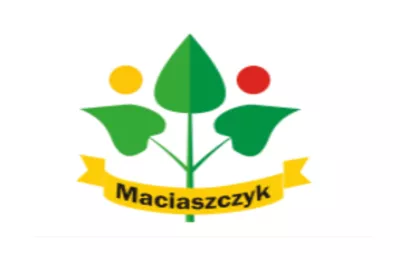General information
RDP Priority
- P2. Competitiveness
RDP Focus Area
- 2A: Farm’s performance, restructuring & modernisation
RDP Measure
- M06: Farm & business development
Beneficiary type
- Farmer / land manager
Summary
Anna and Damian Maciaszczyk run a garden centre in the village of Kokawa in Poland’s Silesian Voivodeship. They also have a tree and shrub nursery on their land and produce flower and vegetable seedlings which they sell at their small garden shop next to the farm. In order to ensure the continuity of the family business, they decided to apply for support under Measure 6 (farm and business development) to invest in machinery and purchase equipment for horticultural production.
Results
- Production has improved and the area of the ornamental tree nursery has expanded onto previously uncultivated land.
- The farm produces a larger assortment of trees, shrubs and horticultural plants which has boosted sales and increased overall income.

Promoter
Anna and Damian Maciaszczyk
Funding
Total budget 60 000 (PLN)
Resources
Documents
Links
Context
The garden centre run by Anna and Damian Maciaszczyk is a family business located in the village of Kokawa in the Silesian Voivodeship. The business has its own tree and shrub nursery on its own land and produces flower and vegetable seedlings. These products are sold at their small garden shop next to the farm. In addition to plants, the centre also sells plant substrates, bark, plant protection products, fertilisers, accessories and tools for gardening.
To maintain the continuity and competitiveness of the family farm, which has existed since the early 1950s and covers a relatively small area of agricultural land (3.5 hectares (ha)), it was important for the owners to expand their range of products and increase their profitability. The experience gained over several generations of running the farm meant that the owners knew which plant species and varieties would sell, the key issue then, in the face of rising production costs, was to increase their farm’s level of mechanisation by investing in modern fixed assets such as agricultural machinery.
Objectives
The main aim of this horticultural family business was to increase competitiveness by expanding its range of plants and seedlings. To do this profitably, they needed to invest in agricultural machinery and equipment that would reduce production costs through mechanisation.
Activities
Project activities included:
- Purchasing agricultural machinery, such as a disc harrow and a rotary tiller, that are necessary for producing at a greater scale.
- Purchasing a tractor with accessories adapted for gardening work and a front loader.
Main results
Thanks to the project:
- The area of land used for production has increased by another 0.35 ha to 5 ha. This additional land is used for producing new plantings of ornamental trees and shrubs, which are then sold in the store.
- The economic size of the farm has increased by over 100% to a current value of over EUR 16 000. This is a value that ensures the business’ viability in the local market.
- The increased revenue has enabled the shop to further increase its offer by adding products from outside suppliers to those grown on the farm. These include small gardening tools, peats and gardening substrates, as well as plant care products.
- The growing number of customers proves the success of the investment. Cooperation with known and reliable suppliers has also been expanded.
Key lessons
- The process of preparing a project application in response to the measure supporting the development of small farms was generally quite simple. In this case the investment only concerned the purchase of machines and equipment. However, even this necessitated prior analysis; learning about the latest trends and improving business knowledge related to the horticultural market.
- While expanding their core business, the owners noticed that there is an important aspect of the sales process that is not only concerned with the quality of the goods, variety and novelty are also important. Supplementing their core offer with time-limited seasonal products, such as Christmas trees, has also helped boost overall sales.
Horticultural scale gardening carried out locally in rural areas may be an interesting solution for farmers who are wondering about the future of their business
